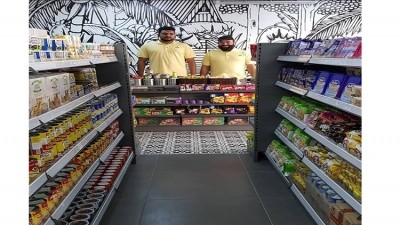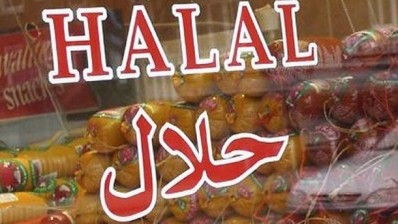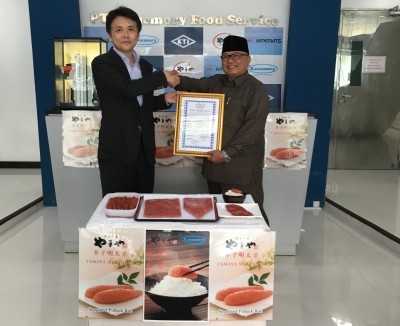Dateline Southeast Asia
Halal recognition opens door for UAE food exports to Malaysia

The Malaysian Department of Islamic Development, Jakim, gave the Emirates Authority for Standardisation and Metrology (ESMA) official recognition of its "UAE Halal Products Control System" following a review by officials.
In order to get a halal certificate, food must be guaranteed by qualified Islamic scholars before it can be labelled as edible for Muslim consumers.
The recognition paves the way for UAE halal products to be exported to Malaysia and the 60 other markets that accept Malaysian halal certification.
"This UAE-led initiative, the first of its kind in the Middle East, will open up horizons to exporters in the country... especially for the markets in East and Southeast Asia and Australasia," said Abdullah Abdul Qader Al-Maeeni, director-general of ESMA.
Malaysia is keen to move trade ties with Gulf countries away from petrochemicals by building a so-called halal ecosystem between Southeast Asia and the GCC.
"The focus is no longer only on the petroleum sector. The new economic strategy will be about developing halal products and goods,” Malaysian deputy prime minister Ahmad Zahid Hamidi said earlier this year.
It was first revealed that Malaysia and the UAE had begun a process to recognise ESMA's halal standards back in 2014, though progress has been slow.
The deal with Malaysia has its roots in a “hub-to-hub” strategy devised by Dubai food authorities, whereby halal products can be delivered and received at approved and accredited zones.
“The Islamic world has to create its own standards and Muslim populations in the rest of the world need somebody they can trust,” said Mohammed Al Gergawi, chairman of the Dubai Islamic Economy Development Centre, the body formed to push Dubai’s aim to be “capital of the Islamic economy”.
"This is as much about international standards as about the Muslim world," he said as negotiations started.
According to official figures, bilateral trade between the UAE and Malaysia amounted to US$6.1bn last year, with UAE exports amounting to US$3.59bn.
More from Southeast Asia...
Synergy Flavours continues Thailand expansion
Having doubled the size of its Bangkok operation after the opening of a dedicated technical and manufacturing facility in Thailand in 2013, Synergy Flavours will now embark on further expansion of its site there.
Carbery-owned Synergy first entered the Asian market with a Thai technical centre in 2009. Its plans for the addition of more office, laboratory and production space at its regional base in Samut Prakarn, Bangkok will be achieved during three phases of construction, due to start shortly.
The Thai factory offers blended powder and liquid flavour production facilities, in addition to sweet and savoury flavour creation and application laboratories. It also provides a full range of technical, warehousing and customer support services.
Steve Morgan, Synergy’s regional managing director, said the expansion has been spurred by growth.
“Our investment so far in Asia has really paid off," he said.
Geoff Allen, boss of the Thailand operation, added: “This will mean we can deliver more flavour solutions to more customers around the region for use in local products, from Hokkaido milk tea to pad cha instant noodles, cheese dips and savoury snacks, and in an array of products for both the local market and export."
He said Thailand has been the "ideal location" due to its first-class infrastructure, which connects Synergy to the rest of Asia-Pacific.
"Its highly skilled workforce with a large number of food science graduates—and of course, its rich food culture and heritage—inspires us on a daily basis.”
Beverage firms rally against Vietnam sugar tax draft proposal
Vietnamese beverage firms have hit out at proposals for a special consumption tax on sweetened drinks, saying their production would be badly hit by the move.
According to a Ministry of Finance draft amendment to the tax laws, carbonated drinks would be subject to a special consumption tax rate of 10%, while VAT would increase from 10% to 12% for all kinds of beverages, and from 5% to 6% for sugar.
Such amendments could lead to a rise of 12% or more on soft drink prices. As a result, there would be a significant decline in beverage consumption and revenue, manufacturers claim.
To offset this, beverage companies could narrow production, resulting in lower corporate income tax revenues.
Small and medium enterprises would be affected the most by tax law amendments.
The US-Asean Business Council, which represents a number of beverage businesses, has urged the finance ministry to consider instead either a tax of just 1-3% on all kinds of sugary foods and beverages, or to impose a special consumption tax just on highly sweetened carbonated drinks.
The Ministry of Finance is currently conducting an assessment report on the potential impact of the draft law on the beverage industry, the economy and consumers.
Nguyen Van Viet, chairman of the Vietnam Beer, Alcohol and Beverage Association, said a sugar tax was unnecessary.
“Many populous countries like China have not imposed special consumption tax on carbonated drinks to avoid negative impacts on the beverage industry and the state budget. So there is no reason for Vietnam to do so,” Viet said.
He pointed out that hundreds of beverage businesses contribute nearly VND50tr (US$2.2bn) to Vietnam's economy and create hundreds of thousands of jobs.












